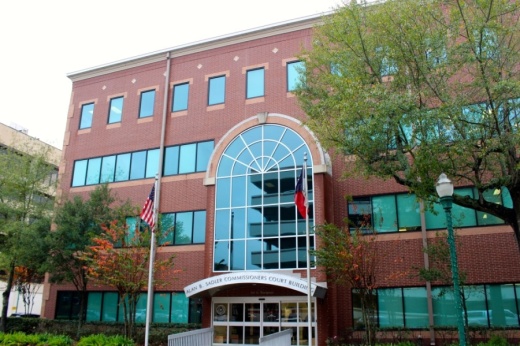But there was some disagreement about how these actions should be carried out.
At the last budget meeting July 31, commissioners approved in a 3-2 vote a proposed property tax rate of $0.4412 per $100 valuation for fiscal year 2020-21, which is around a 1.41% decrease over FY 2019-20’s rate. Public hearings and final votes on the budget and proposed tax rate will be held Aug. 21.
County Judge Mark Keough and Precinct 3 Commissioner James Noack voted 2-3 for a lower effective tax rate of $0.4319 per $100 valuation. An effective tax rate is one that generates an equal amount of tax revenue year over year and can be lowered annually as local property valuations increase.
The proposed tax rate of $0.4412 per $100 valuation is a decrease from the previous fiscal year, but a homeowner could still end up paying more in property taxes if their appraised value rises. According to data from the Montgomery County Central Appraisal District, the average market value of active homesteads in the county has increased from $192,486 in 2010 to $297,639 in 2020, a 50% increase.
The issue of rising property appraisals has been so contentious that it led to a lawsuit against the county appraisal office by Conroe Mayor Toby Powell, which was later dropped.
At the Aug. 11 Commissioners Court meeting, Noack claimed the small savings from adopting the proposed effective tax rate would have been important for business owners struggling to stay open during the pandemic. Homeowners have also voiced concerns.
“An extra $2,000 ... to them may make difference if they can keep their doors open or not,” he said.
Noack presented three options the county could save nearly $4 million from as an alternative to getting the money from taxes.
The first option would involve budget cuts and other adjustments from various county departments. For instance, the county could take $300,000 from the Montgomery County Animal Shelter’s budget because the shelter currently has 86 animals, as opposed to 754 animals at this time last year, he said.
Other savings Noack outlined include $200,600 in interest savings from the federal Coronavirus Aid, Relief and Economic Security Act and $1.1 million from a tax office building fund, among other savings, for a total of $3.6 million.
A representative from the animal shelter was not present at the meeting, and it is not immediately clear if the $300,000 would significantly affect its budget. Precinct 2 Commissioner Charlie Riley did point out later in the meeting that commissioners would most likely have to give the money back to the animal shelter at some point once its animal population returned.
The other two options involved cutting and reallocating $4 million from the capital improvements projects.
“Nobody wants to stop capital improvement, I understand that, but when businesses are not sure if they are going to remain open and our taxpayers are asking for assistance, maybe we should just wait one year on any capital improvements,” Noack said.
After some discussion on Noack’s proposals, Precinct 4 Commissioner James Metts attempted to clear up any confusion that he had been supportive of an increased tax rate for citizens at the July 31 meeting.
“We went to the effective tax rate last year, and what happened folks, your tax rates went up,” he said. “Your taxes are still going to go up [with this proposed tax rate] because Montgomery County is not your problem. Your problem is appraised values are going through the roof.”
Metts said he wants tax relief for citizens while continuing to support law enforcement. A key component of the latter would be to fund a new forensic center project for Montgomery County, which would allow law enforcement officials to investigate deaths in a timely manner.
Montgomery County had contracted first with Harris and then Dallas counties to supply these services, but there had been issues with both, such as delayed investigations and requiring local law enforcement to travel to Dallas County, Metts said.
“I had this poor grandmother call me every two weeks for nine months wanting to know why her child passed away, and she was crying, and I didn’t have an answer for her,” he said, referring to when the county contracted with Harris.
Now that Montgomery County has its own forensic pathologist, there are still issues, he said.
“They’re basically in a shack over here, trying to conduct these autopsies, and we owe it to them to give them the best,” Metts said. “Right now, because we don’t have a morgue space, we’re storing bodies over there in ... refrigerated vans.”
Commissioners ultimately approved allocating $4 million from the capital improvements project’s general fund balance to the county’s forensics center project.





